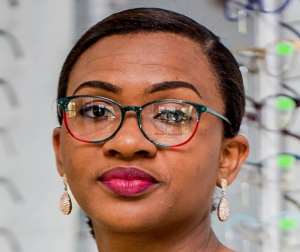 Dr. Eunice Ahmed Agyemang, a haematologist
Dr. Eunice Ahmed Agyemang, a haematologistDr. Eunice Ahmed Agyemang, a haematologist and member of the Haemophilia Society of Ghana, has called for a nationwide campaign to address inequities in the care and treatment of bleeding disorders, especially among women and girls.
Speaking to the media ahead of the 2025 World Haemophilia Day, Dr. Agyemang emphasized the importance of creating safe, stigma-free spaces for women and girls living with haemophilia and other bleeding disorders, where they can share their experiences without fear or shame.
World Haemophilia Day, observed annually on April 17, raises global awareness of haemophilia and other inherited bleeding conditions. The theme for this year’s commemoration is “Women and Girls Bleed Too,” a call to action against long-standing misconceptions that bleeding disorders primarily affect men.
Dr. Agyemang noted that while progress had been made in improving haemophilia care at key institutions such as the Korle Bu Teaching Hospital and Komfo Anokye Teaching Hospital—with support from the World Federation of Haemophilia and the Ghana Haemophilia Society—significant challenges remain.
“Critical gaps still exist, particularly in access to diagnostics, treatment, and specialized care,” she said.
To bridge these gaps, Dr. Agyemang called for a collective national effort involving government institutions, public health agencies, civil society organizations, and individuals to ensure that everyone living with a bleeding disorder receives equitable, timely care—regardless of gender, location, or financial status.
“Let us ensure that no woman or girl living with a bleeding disorder in Ghana is left behind,” she said. “When we listen to them and provide the care they deserve, we improve outcomes not just for individuals, but for families, communities, and our entire country.”
She noted that while bleeding disorders have no cure, they can be effectively managed with treatments such as clotting factor replacement therapy, antifibrinolytic medication, hormone therapy for menstrual symptoms, and supportive care from specialized healthcare professionals.
“Early diagnosis is key to improving quality of life,” added Dr. Adwoa Agyemang Adu Gyamfi, also a member of the Haemophilia Society of Ghana and an aspiring haematologist, in a separate interview.
She explained that bleeding disorders include haemophilia A and B—genetic conditions in which clotting factors VIII or IX are deficient. While these conditions are more common in males, women and girls can also experience symptoms, particularly if they carry the gene or have low factor levels.
Dr. Gyamfi highlighted von Willebrand Disease (vWD) as the most common inherited bleeding disorder, affecting both men and women. It often presents with symptoms such as easy bruising, frequent nosebleeds, and heavy menstrual bleeding.
She also mentioned rarer bleeding disorders, including platelet function disorders and deficiencies in other clotting factors. Common symptoms, she noted, include unexplained bruising, blood in urine or stool, painful or swollen joints and muscles due to internal bleeding, and excessive bleeding after surgery, dental work, or childbirth.


